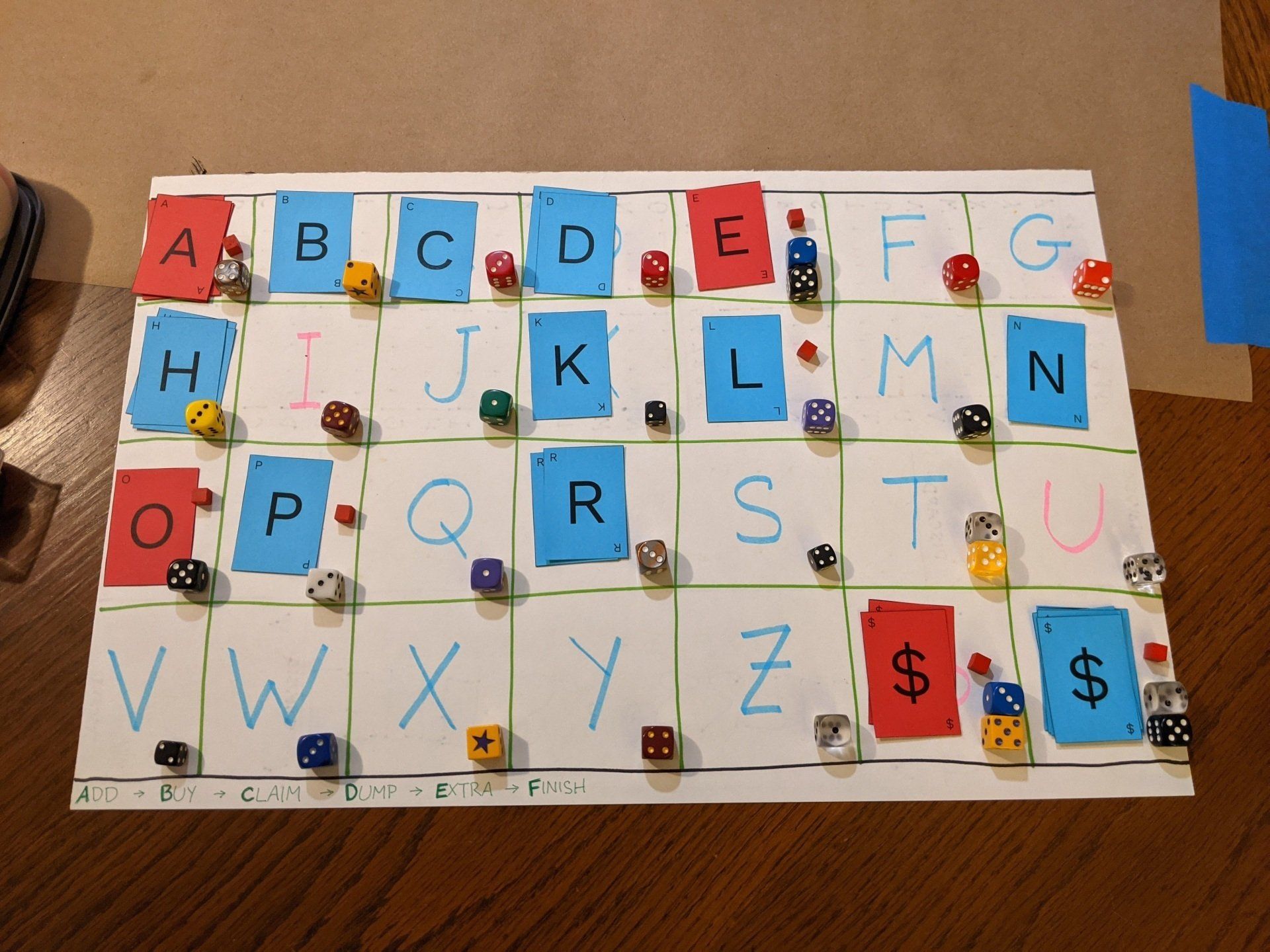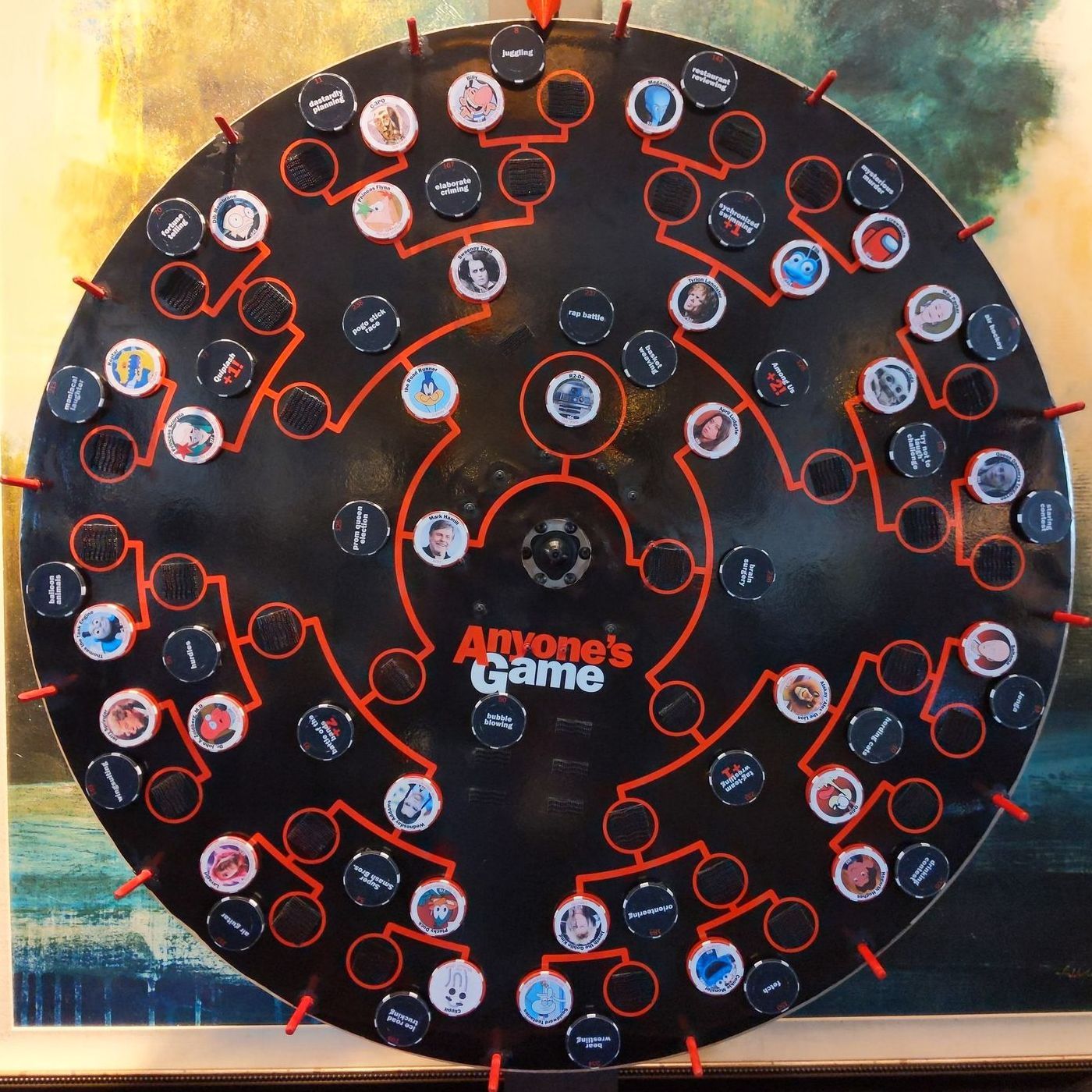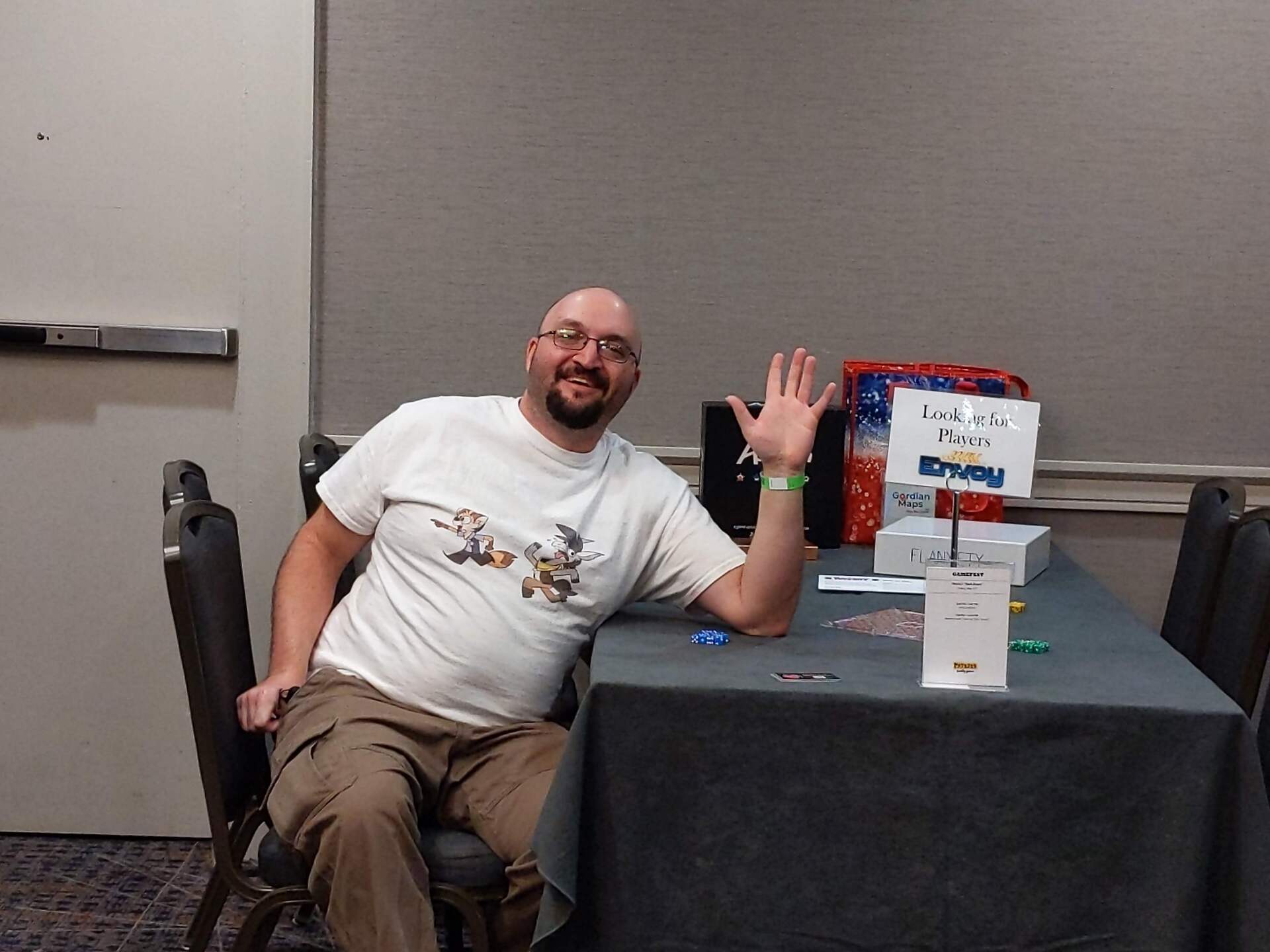Inspiration is wild, man
October 15, 2021
Ever just get an idea seemingly out of nowhere? Or maybe a silly inside joke with your friends takes on a life of its own and now you have a full project clamoring in your brain to be unleashed?
Sometimes it's like inspiration just has a life of its own.
Capitable Letters
We all misspeak from time to time, but do you have one of those friends who seem to generate most of the most interesting, hilarious, and enduring malapropisms by themselves?
For my group of friends, that's Alex. From "orange Herbert" (a Herbert who is orange flavored) to "capitable letters" (letters that can be made capital but are not), most of the best verbal typos come from him.
These jokes have sat around in our group for a while, a good year or so, occasionally getting used in Cards against Humanity or the like. But when I saw a listing on the Game Crafter ↗ for the McMeeple Gateway to Games contest ↗, ideas began to percolate and bubble to the surface.
One of those was turning "capitable letters" the inside joke into Capitable Letters the potential gateway board game. Within minutes, my brain put some pieces and possible mechanics together, and that night I stayed up extra late throwing a prototype together.
Rough draft
The first prototype, board seen above, was intended to have a mixture of worker placement, auction, and set collection mechanics, all themed around buying letters and selling words for profit.
The board consisted of three main parts:
- The value tracks, one for each letter and numbered from $1 to $10. Values above $10 would use a "+$10" token and restart from the bottom of the track.
- A pool for words that players could make for extra money (they were allowed to make other words, but each one could only be made without a card once).
- A pool for letters that players could buy at auction.
Players would take turns placing one of their three pawns on an action they wanted to do, and there were some limits in play. At the end of the game, the player with the most money was the winner — whenever that would be.
I've learned that you don't need to have everything be perfect — or really, even good — the first time out of the gate with a new game. In fact, trying to make sure it is will often bog things down and keep you from producing anything at all.
So, with the understanding that this roughest-of-rough-drafts edition of Capitable Letters would likely be pretty bad, horribly broken, and easily breakable otherwise, we forged onward.
And it was awful. No one really liked it, especially Alex.
Turns took forever to complete, and it took multiple turns before anyone could even spell anything. It did not feel good. So after about an hour of playing, and with multiple rule changes applied on the fly, we called it quits, having not even gotten around to everyone getting to be the first player.
But that's fine. No need to play it all out when I already had what I needed. I spent the next week between game nights on the game forge, hammering things out, smoothing out wrinkles and knocking entire chunks of the game off until I had something that — at least on paper — appeared to solve all of the problems we had with the game.
Major revision
By the time I was done rewriting the game, nearly from scratch, I had stripped out all of the worker placement and all of the auctioning — the two original core premises of the game.
Instead of placing workers to take part in desired actions, everyone in turn gets a chance in each phase of the round.
Instead of auctioning each letter to drive the price up, it simply increases by $1 every time someone buys one — and decreases by $1 if it's in the market but no one touches it.
Instead of having to keep track of words people make on a list, they can now only make words showing on the cards — but they get one of those word cards to keep secret in their own hand.
Instead of each word card having one word on it, each now has two, usually of varying length, to prevent a bottleneck of long words (made of lots of letters) or short words (worth very little per letter).
Instead of letter tracks, we use dice next to the piles.
Instead of discarding letters used to make words, they go back to the market.
And instead of using paper money from Monopoly, we just used poker chips.

The result? Everyone liked it, including Alex. The game was vastly improved, far more streamlined, far more competitive (even if I did get stomped pretty badly), and much easier to understand.
Changing the names of the phases to start with a direct sequence of letters helped a lot in keeping the game on track, and having related information in one place also helped. It really does seem to be shaping up to take part in the gateway game contest after all!
The next steps from here are to:
- Adjust the letter distribution to make common letters more competitive.
- Playtest it with more players, fewer players, and strangers.
- Create a prettier prototype to take to conventions.
- Do a lot more playtesting and revision.
It's hard for me to explain my thought process sometimes, and that's a valuable skill to have. So I hope that by continuing this blog I'll get better at it, as well as being able to talk about the important points of my games and projects to people I've never met. For now, that's today's entry. Tomorrow, I'll tell you about the new concept I came up with this morning!










